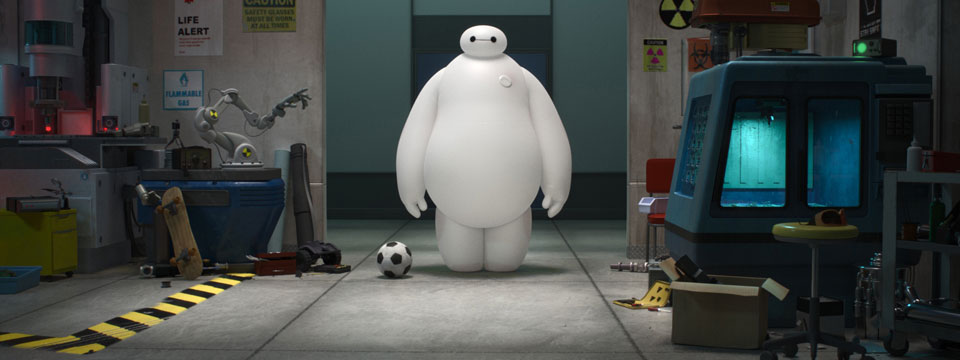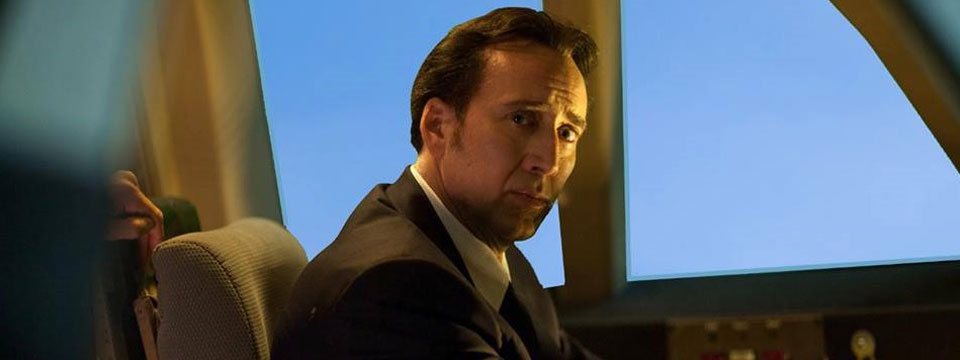
by Brian Hobbs | Dec 30, 2014
In a recent issue of TIME magazine, columnist Jessica Bennett speaks about her own personal research into a reproductive technology known as “egg freezing.” To be specific, the article described how “healthy eggs are surgically removed from a woman’s ovaries and stored in a lab until she is ready to get pregnant.”
Her stated motivation and of those she met who are also considering this process: “We were single, aging and worried we might not be able to find a partner in time to get pregnant,” recognizing how fertility for women starts to decline “as early as age 27 and drops more rapidly around age 35.”
Ms. Bennett seems to bemoan how women, unlike men, do not “enjoy a virtual lifetime of fertility.” Her piece also discussed how various companies, such as Apple, are paying for their female employees who do this costly procedure. Setting aside if, from a business viewpoint, covering egg freezing makes any sort of sense, I want to reflect on what embracing this “reproductive technology” says about society today.
Commodification of life
Since the process of In Vitro Fertilization (IVF) first appeared to today, the process has become much more widely available and socially acceptable. Indeed, many married couples—Christians and non-Christians alike—have used IVF to conceive a child. Each one of these children is a welcome addition and a blessing.
At the same time, it is hard to ignore the tremendous problems associated with IVF and other “reproductive technologies.” For years Catholics consistently have opposed IVF, arguing it leads toward the commodification of life, that it sidesteps the one-flesh sexual union created by God and renders the marital union less necessary.
An entire blog post could be dedicated as well to the reckless, careless regard the IVF industry takes toward life and the unborn, and its leanings toward picking “designer gene” babies. For every child born through IVF, many more died in the process or perhaps as bad, remain frozen in refrigerators for later use or experimentation sadly.
The process of egg freezing, in some ways, is less problematic that IVF, but the two appear to be inextricably linked. Furthermore, egg freezing takes something made by God innate to our created bodies and turns them into a commodity. This is a dangerous viewpoint, no matter how well-intentioned the patient or doctors are.
Reproduction vs. Procreation
British novelist Aldous Huxley’s 1932 book, Brave New World, depicts a dystopian society with no belief in right and wrong, one in which everyone was on drugs and babies were made in science labs. These people, made in “hatcheries” were genetically labeled and put into specific classes or categories without hope of social mobility. In other words, Huxley’s Brave New World has ended up looking more like a preview of the present future than a fictional world.
In today’s society, we have moved increasingly away from natural reproduction—what Christians have long called “procreation”—toward a more animalistic view of sex and reproduction.
Christian author and ethicist Gilbert Meilaender, in his important book “Bioethics: A primer for Christians,” draws this clear distinction in worldviews and calls on Christians to resist the idea that there is a “neutral ground” in bioethics.
He says, “These topics (e.g. euthanasia, abortion, IVF) are not driven simply by concern for public policy regulations; rather, they involve some of the most important aspects of our humanity and raise some of the deepest questions about what it means to be human.” He insists that IVF can easily cross a line into which life becomes a product rather than a gift from God. Christians would do well to apply the clear thinking of bioethicists like Meilaender when it comes to “egg freezing.”
Only by a serious examination of each reproductive technology that comes along, through the lens of Scripture and the Christian worldview, will we find a path that leads not merely to biological life, but one that leads to abundant life that Christ came to give (John 10:10). God help us…

by Brian Hobbs | Dec 4, 2014
Plot summary
Set in the fictional city of “San Fransokyo” (think part San Francisco, part Tokyo), “Big Hero 6” depicts a science prodigy named “Hiro Hamada,” who excels at robotics making. He befriends a robot named “Baymax,” made by his much older, much wiser brother “Tadashi.” Adventures and battles against evil forces ensue.
Positive elements
I really had no idea what to expect from this movie, other than I heard it was clean and family friendly. The movie’s best character was “Tadashi,” who is “Hiro’s” older brother. He exemplifies that best of perseverance, wisdom and a simple good-natured manner. The movie also had its fair share of funny moments and surprise plot twists.
Negative elements
My initial concern about this movie was that it would be a piece of anime or manga cartoon, which is an art form connected to the Japanese style of cartoon that I am convinced contains some questionable elements. Fortunately, Disney did not go all the way with the anime style and themes and instead stuck with its popular Pixar-style animation and themes.
Within the movie, there are some imitative phrases that kids will pick up on (e.g. “What the…”) that are annoying and problematic. The movie also portrays gambling, though it is painted in a bad light.
The movie wallows in a discussion about puberty, so parents should be prepared for questions that come from that. Finally, while “Hiro” learns some valuable lessons about loyalty, friendship and goodness, the hero of the story is a robot, rather than a person. It is my firm belief that these days, children, especially boys, are raised to admire made-up heroes (“Iron Man”) more than they are real-live heroes (e.g. George Washington, Winston Churchill). While this may not be inherently wrong, it falls short of what is best and most edifying.
Spiritual content
The theme of suffering and death were central to “Big Hero 6.” We see the characters’ life decisions are motivated by their response to the death of tragedy surrounding loved ones. There is, unfortunately, no mention of God or Jesus in the world of “Baymax” and “Hiro.” And though spirituality is presented, as well as family values, they are not rooted in Natural Law or absolute right and wrong. That being the case, the movie does not seem to overtly promote false religions or worldviews; it just doesn’t enhance a good worldview either. Finally, the movie does show the limits of technology and our ability to manage science. As someone once said, I am not against technology, I am against the tyranny technology has over mankind.
Overall
If your goal is to see a fairly clean, entertaining movie this time of year, “Big Hero 6” could be for you. If your goal is to inspire yourself or others to attempt great things in their field of interest of study, such as science, this film could help too. I do not think, however, this movie attains to the level of a classic or one with tremendous redeeming value, and I do not expect our household will watch it again and again.
Rating: 2.5. stars (out of 4)

by Brian Hobbs | Nov 19, 2014
Accusations from women claiming to have been sexually assaulted by beloved actor Bill Cosby have cast a dark cloud over the universally-admired comedian.
In America’s courts, our laws say “innocent until proven guilty,” yet in the court of public opinion, society sometimes says “innocent until accused.”
Therefore, we must be resist jumping to conclusions and let time tell if there is any truth to these accusations, which seems so contrary to what we know about Cosby. If they are confirmed in any way, though, an icon of fatherhood in America would be crushed.
Just as “Ward Cleaver” or “Andy Griffith” represented what godly, respectable TV fathers should be for Baby Boomers, Bill Cosby’s “Heathcliff Huxtable” was that for my generation, Gen X.
To this day, our family watches re-runs of The Cosby Show. The warmth and affection “Dr. Huxtable” shows for his wife “Claire” was something special and appealing. The wisdom—and good-natured humor—with which he parented his children amid the wackiest of life situations provided inspiration to millions of men.
Yet like all TV shows, the reality is often not all it seems. Indeed, life promises no happy endings for every episode. Yet God promises something much more.
He is the Heavenly Father who never could disappoint. He is the perfect example of how a father should be. And in sending His Son Jesus to die for our sins and rise again, God provides the ultimate happy ending for those who place their trust in Him.
No accusations on the news or scandal can topple those promises. Here’s praying for all those involved in the Cosby scandal, and here’s a reminder that no person is sinless, save Jesus Christ alone.

by Brian Hobbs | Nov 17, 2014
Differences between the Southern Baptist and Roman Catholic view of the Papal office are well-known and form no small chasm. Yet cultural confusion surrounding marriage and family are pushing together the groups.
Pope Francis has convened a Vatican colloquium, to which he invited, among other world religious leaders, Southern Baptist ethicist Russell D. Moore. Dr. Moore, who serves as president of the Ethics & Religious Liberty Commission had this to say in the wake of Pope Francis’ opening remarks on marriage, complementarity and culture today.
“Pope Francis made clear that male/female complementarity is essential to marriage, and that this cannot be redefined by ideology or by the state,” Moore said to Baptist Press. “I am glad to hear such a strong statement on this, and on how an eclipse of marriage hurts the poor and the vulnerable.”
According to BP, “The pope told 300 representatives of various world religions Nov. 17 that living in a home with a father and a mother is crucial to a child’s wellbeing.”
“The family is the foundation of co-existence and a guarantee against social fragmentation,” Francis said, according to a transcript of his address posted online by Vatican Radio. “Children have a right to grow up in a family with a father and a mother capable of creating a suitable environment for the child’s development and emotional maturity.”
Francis added that “the contribution of marriage to society is indispensable.”
“Complementarity” — a term referencing the unique roles of men and women in a variety of contexts — is “at the root of marriage and family,” the pope said.
“When we speak of complementarity between man and woman in this context, let us not confuse that term with the simplistic idea that all the roles and relations of the two sexes are fixed in a single, static pattern,” the pope said. “Complementarity will take many forms as each man and woman brings his or her distinctive contributions to their marriage and to the formation of their children.” Complementarity “is not just a good thing but it is also beautiful.”
Francis acknowledged that marriage is “in crisis” and said its decline has adverse effects on society.
“We now live in a culture of the temporary, in which more and more people are simply giving up on marriage as a public commitment,” Francis said. “This revolution in manners and morals has often flown the flag of freedom, but in fact, it has brought spiritual and material devastation to countless human beings, especially the poorest and most vulnerable. Evidence is mounting that the decline of the marriage culture is associated with increased poverty and a host of other social ills, disproportionately affecting women, children and the elderly. It is always they who suffer the most in this crisis.”
To protect marriage, it is “essential that we foster a new human ecology and advance it,” Francis said. The pope’s mention of “ecology” — the study of living organisms and their environments — referenced the fact that traditional family is the best environment for human flourishing.
“Social environments, like natural environments, need protection,” Francis said. “And although the human race has come to understand the need to address conditions that menace our natural environments, we have been slower to recognize that our fragile social environments are under threat as well.”
Younger generations in particular must “not give themselves over to the poisonous mentality of the temporary” and instead realize that “permanent commitment to solidarity, fidelity and fruitful love responds to the deepest longings of the human heart,” Francis said.
For more information on this story, visit www.baptistpress.com.

by Brian Hobbs | Oct 9, 2014
In the year 2000, Christian actor Kirk Cameron starred in a movie called “Left Behind,” based on the runaway bestselling books by Tim LaHaye. Fourteen years later, a new version emerges on the silver screen. Below are some thoughts about the movie itself; for reflections on Left Behind and the end times, see this post.
Plot summary
The summary listed at the Internet Movie Database (IMDB) says this about the plot: “A small group of survivors are left behind after millions of people suddenly vanish and the world is plunged into chaos and destruction.” I know if IMDB was trying not to spoil surprises for movie goers, but that plot summary is telling, given that it can be used for many post-apocalyptic movies, not ones that are supposed to be Christian-based. In actuality, the movie follows the basic book storyline, following one family and also a TV news reporter in the wake of the sudden taking away (Rapture) of God’s people.
Positive elements
This “Left Behind” movie features name brand actors like Nicolas Cage, which is sure to have a larger draw that the average Christian movie. Having not read the Left Behind books, I am not able to compare how closely this movie follows the book, but its acting and movie effects exceed that of the first movie rendition.
Negative elements
It is safe to say, if the movie makers planned on presenting a movie that would make people stop and think about Christ’s return and the basic claims of Christ, this movie falls short. In fact, the most suspenseful moments come closer to looking like an action flick, like “Con-Air” and “Die Hard 2” (not that most Christians would recommend those movies) than an end-times drama. Moreover, the Christian characters presented seem like the air heads, while the skeptics are the level-headed folks. Though the skeptics are proven wrong, their arguments and very personalities are more winsome than the Christian ilk.
Spiritual content
I firmly believe the Left Behind premise is fraught with doctrinal and Scriptural problems (including about how God works with Israel now and in the end times). So flaws from the books might reinforce questionable beliefs that rank-and-file Christians have about Christ’s return. In 2011, the Baptist Messenger produced a helpful series on the book of Revelation that might help speak to the Scriptural views that are held, rather than the sensational ones in Left Behind.
Overall
I went into this movie expecting a compelling depiction of how the end-times would look, at least in the worldview of LaHaye. I walked away seeing a half-baked movie that will appeal neither to nonChristians for its quality and memorability, nor Christians for its strong message. I cannot therefore recommend this movie.
Rating: 1 star (of our 4)




